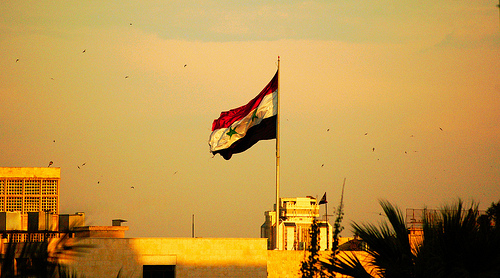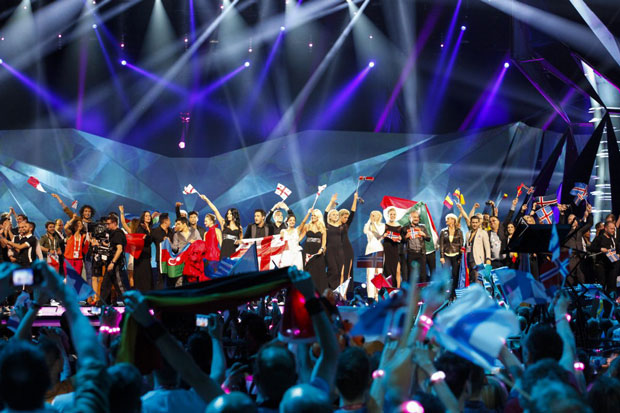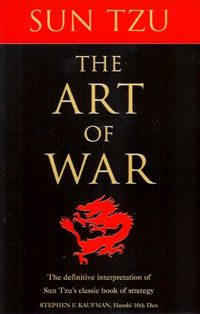Index relies entirely on the support of donors and readers to do its work.
Help us keep amplifying censored voices today.
GLOBAL
Social media isn’t a free-for-all space
It is often thought that social media breaks down barriers and allows the oppressed an avenue for free speech. Social media can also allow easy sharing of information with a wider audience, all with just a click of a button. (Asia One)
Cannes 2013:Iran’s Farhadi and China’s Jia talk cinema & censorship
Two directors from countries with tough film censorship brought bold and probing movies to the Cannes Film Festival on Friday — one exploring China’s social problems, the other delving into the mysteries of the human heart. (India Live)
ALGERIA
Algerian newspaper editor accuses government of censorship
An editor has accused Algeria’s government of censorship after it blocked the publication of his two newspapers. (Washington Post)
Bouteflika’s ‘coma’ leads to censorship of two Algerian dailies
Algeria censored two dailies over reports that President Abdelaziz Bouteflika, hospitalised in Paris since April 27, will return home in a coma after his health took a turn for the worse, their chief said on Sunday. (Middle East Online)
BAHRAIN
Letter: Bahrain citizens denied basic rights
In the U.S., many citizens exercise their right to peaceful assembly. However, in Bahrain this basic human right is being denied. Citizens are subject to ridiculous punishments for peaceful expression and assembly. Bloomington Pantagraph
Video: Surveillance for Sale: ‘UK exports spyware to Bahrain to track activists’
The Bahraini government is accused of using surveillance software from a UK-based company, to spy on a leading rights activist. That’s according to documents filed at the High Court in London, by one of the founders of the rights group, Bahrain Watch. The programme works by infecting your computer, and then recording your Skype conversations and social media activity. It can also take screenshots without your knowledge, and access information on your hard disk. Alaa Shehabi, who filed the court documents – told RT that digital surveillance has been spreading in Bahrain, since former high ranking UK police officer John Yates became security advisor there. (RT)
INDIA
Send Section 66A bullies home
We’re all familiar with the use of IT Act Section 66A to stifle dissent. Even the apex court has admitted that the law cannot be entrusted to ordinary policemen. But now big organisations are figuring out how to take advantage of this censorship tool too. (India Today
ITALY
Amanda Knox claims she is penniless after facing libel lawsuits over her memoir
Amanda Knox has revealed that she is almost broke because of her huge legal bills – despite a $1.5million book advance. (Daily Mail
RUSSIA
EU ‘worried’ about Russia’s human rights record
The European Union criticised Russia’s human rights record, saying it was increasingly concerned at a wave of restrictive legislation and prosecutions against activists. (TV New Zealand)
UNITED STATES
What We Said 150 Years Ago: How free speech is abridged
The New York copperheads (who were Democrats living in northern states opposed to the Civil War) had a meeting the other afternoon to denounce the (Lincoln) administration for suppressing the liberty of “free speech.” (Wisonsin State Journal)
Ashley: Chilling effect on free expression worth worrying about
What’s going on here? By coincidence or terrible karma, the unsettling developments on the free expression of ideas, open government and our ability to monitor that government are reason for concern and anger. (The Herald-Sun)
‘IRS suppressed advocates of free speech’
The Internal Revenue Service has sought to “suppress” advocates of free speech by targeting conservative groups based on their ideology, says Jim W. Dean, managing editor and columnist at Veterans Today. (Press TV)
 Five members of the Syrian Centre for Media and Freedom of Expression (SCM) are scheduled to appear before the country’s Anti-Terrorism court in Damascus on 19 May. Three of the activists, SCM’s head Mazen Darwish, blogger Hussein Gharir, and activist Hani Zaitani have been held in prison since February 2012, when Syrian security forces attacked and raided the organisation’s offices. Abdel Rahman Hamada and Mansour Omari were conditionally released earlier this year. Syria’s Air Force Intelligence has accused the five activists of “publicising terrorist acts”, under the country’s Anti-Terrorism law.
Five members of the Syrian Centre for Media and Freedom of Expression (SCM) are scheduled to appear before the country’s Anti-Terrorism court in Damascus on 19 May. Three of the activists, SCM’s head Mazen Darwish, blogger Hussein Gharir, and activist Hani Zaitani have been held in prison since February 2012, when Syrian security forces attacked and raided the organisation’s offices. Abdel Rahman Hamada and Mansour Omari were conditionally released earlier this year. Syria’s Air Force Intelligence has accused the five activists of “publicising terrorist acts”, under the country’s Anti-Terrorism law.
A group of 19 international organisations today called for the release of Zaitani, Gharir, and Darwish, and for the charges against all five to be dropped. If convicted, they face up to 15 years in prison. According to a statement released today, Syria’s Justice Minister earlier this month promised the release of SCM’s three jailed members — in addition to 69 other jailed activists.
SCM member Maha Assabalani, who was avoided being imprisoned during the raid, wrote about her colleagues for Index last year. She said that her colleagues are in prison for fighting for freedom of expression — and that they “risked their life fighting for real change.” She also said that Darwish regularly told the organisation’s staff that “there are not enough prisons for the free word.”

The Eurovision Song Contest gives a platform to some of Europe’s outliers on free expression. Photo: Sander Hesterman (EBU) / Eurovision 2013
Europe will once again be swept away by a sparkly hurricane of techno beats and pompous ballads, kitschy and/or traditional costumes, wind machines, pyrotechnics, heavily accented English, awkward host banter and nul points. Yes, Eurovision takes our breath away in more ways than one.
While first and foremost a showbiz spectacle, if you look beneath the layer of sequins you’ll soon discover the political tinge to the continent’s premier singing competition. From the start in 1956, it was designed as fun way of testing out new broadcasting technology. Those partial to the occasional conspiracy theory would have you believe this was also a convenient cover for pan-European satellite testing during the Cold War, which is why NATO members Turkey and Israel were invited to the party.
With the lifting of the Iron Curtain and the inclusion of the Eastern Bloc in 1990, much was said about the healing, unifying power of the contest. Since then, even more has been said about the tendency of the late arrivals to share their points amongst themselves. The UK, for instance, have been vocal about political, neighbourhood voting being the cause of their recent Eurovision failings, rather than, say, sending entries like this. And while Eurovision, somewhat censoriously, prohibits political songs that has not stopped artists from trying to get their meaningful messages across.
The most famous recent example is perhaps Georgia’s pun-tastic 2009 offering “We Don’t Want To Put In’‘, to be performed at final in — you guessed it — Moscow. They were told to change the song or drop out, and ultimately chose the latter. Krista Siegfrids, Finland’s entrant this year, has warned she might be planting a kiss on one of her female dancers in protest at her country’s failure to adopt equal marriage legislation.
Most significantly, Eurovision gives its entrants prime time access to some 800 million viewers around the world – an unparalleled platform on which to promote their nation should they choose to. Many have jumped at the opportunity, chief among them the land of fire; Azerbaijan. As 2012 hosts, the Aliyev regime poured millions of their significant oil wealth into reforming their international reputation as a repressive hereditary dictatorship. The only problem with this otherwise foolproof plan was that they forcefully evicted people to make room for an ambitious Eurovision-inspired urban renewal project in Baku, attacked journalists covering and speaking up about it, and generally conducted their notoriously human rights abusing business as usual. Not much has changed since the party left town a year ago — only this week, the regime announced they have extended libel laws to online speech ahead of October’s presidential election.
Before that, 2009 hosts Russia attempted to dazzle Europe and the world, with a spectacular stage show in the 25,000 capacity Indoor Olympic Arena in Moscow. However, LGBT activists seized the opportunity to shine the spotlight on the country’s poor record on gay rights, attempting to stage a Slavic-wide Pride parade on the day of the final. In a clear violation of the right to freedom of expression and assembly, the parade was banned. Many of the protesters who showed up anyway, were attacked and arrested. LGBT rights remain poor in Russia, with a 100-year ban on pride parades in Moscow announced only last year. The charm offensive of last year’s singing, dancing, baking grandma entry has this year been followed by the John-and-Yoko-esque ‘What If?‘, which among other gems, contains the lyrics “Together we can make a better place/ On this little island out in space”. Meanwhile, in Russia, internationally funded NGOs have to register as ‘foreign agents’, or risk fines and prison time.
You don’t have to host to be able to host to take full advantage of the promotional platform Eurovision. Like Belarus, you can condense your message to fit the 3-minute performance slot. In 2011, the country known as Europe’s last dictatorship sent Anastasiya Vinnikova to perform the subtly named “I Love Belarus“. Somehow, it didn’t progress to the final. Maybe the rest of Europe had some trouble reconciling the country described in the song, with its “fields full of gold” and “free, friendly and young people”, with the country where you’re put in prison for pointing out that your repressive dictator is, well, a dictator.
Also in the running this year is Hungary, the country with some of the most draconian press regulation on the continent. There’s Ukraine, where the former prime minister is serving a seven-year jail sentence for what is widely recognised as politically motivated charges. In Italy, the final will be broadcast on public broadcaster RAI, one half of the TV duopoly that poses a big threat to the country’s media plurality. In Greece, financial woes have also had a pretty detrimental effect on freedom of expression. Bulgaria’s web of cosy relationships between authorities and media leaves the country without an accurate picture of itself.
Yes, Eurovision is first and foremost one of the biggest parties in the world. However, as you’re watching the spectacle unfold on Saturday, spare a thought for the Europeans who are not as free to express themselves as their fellow countrymen on stage in Malmo.
An election is always a good litmus test for a country’s media freedom — particularly in Bulgaria. It consistently ranks last amongst European Union members for media freedom, and the US Department of State called its “gravely damaged media pluralism” one of its most pressing human rights problems, Georgi Kantchev reports.

In the run-up to the 12 May parliamentary election, former ruling party GERB received the most mentions in Bulgaria’s media, ahead of the Bulgarian Socialist Party (BSP), and the Turkish minority movement DPS — mirroring the election results.
Media coverage, however, does not accurately capture the gap between parties. GERB was mentioned 3,642 times in election coverage — 80 per cent more than BSP. In the polls, the difference between the two parties was less than four per cent.
Bulgaria’s media grants over-exposure to those in power, and the industry seems to quickly adapt to a new political situation. While the New Bulgarian Media Group (NBMG) editorial stance was against the GERB in the 2009 elections, it changed its tune almost overnight after the party’s victory.
Given the close ties between the media and political parties in the country, distorted election coverage is not very surprising. For instance, a high-ranking DPS member owns the NBMG, which owns the Telegraph, the highest circulated newspaper in the country.
The tangles between politics and the Bulgarian media has drawn the attention of the Organisation for Security and Cooperation in Europe (OSCE). In a report released ahead of the election, the body expressed concerns over the “growing concentration of media ownership in the hands of a restricted circle of business people.” According to the OSCE, this “raised concerns about the independence of media from undue economic and political pressure.”
“Most media find themselves in a passive position and practically shun their most important function — to build an informed public opinion, and through that to support the political choice of the people”, says Orlin Spassov, professor of journalism at the University of Sofia. “The result of this campaign was a deficit of informed choice.”
Bulgaria has measures put in place to distinguish editorial content from political advertisements for broadcast media, but not for the press. The OSCE pointed out that “paid media coverage is often not labelled as such, thus potentially misleading the audience about the nature of the reporting.”
Bulgaria’s murky relationship with the press also creates trouble for journalists, who sometimes feel pressure for their reporting. In April Boris Mitov, a journalist for news site Mediapool.bg was summoned for questioning by prosecutors after writing an article accusing a Sofia deputy city prosecutor of illegal wiretapping. The prosecutors placed pressure on Mitov to reveal his sources, and after he refused to do so, they reportedly told him that he could face up to five years in prison for disclosing state secrets.
More troubling is the culture of self-censorship arising from pressure placed on journalists from business groups. Most common is economic pressure — which trickles down from media outlet owners to editors and reporters. The NBMG group, for instance, is largely financed by the Corporate Commercial Bank (CCB). The CCB has also held a large percentage of state-owned enterprises in the transport, energy, and defence sector — which means that NBMG is practically financed with public funds. This helps explain why the group is often cosying up to those in power.
While infrequent, sometimes journalists face direct threats from businesses. After writing a series of articles critical of a local business group last year, investigative journalist Spas Spassov received Sun Tzu’s book The Art of War in the post. Included was a note quoting a line from the book: “You should avoid those you can’t either defeat or befriend.”
The most recent election results, however, have left an unclear picture of who is in power: since no party has gain
ed a majority in Parliament. Coalition building was undermined by a deeply polarising election — which means that the media will have a difficult time knowing who to pledge allegiance to.